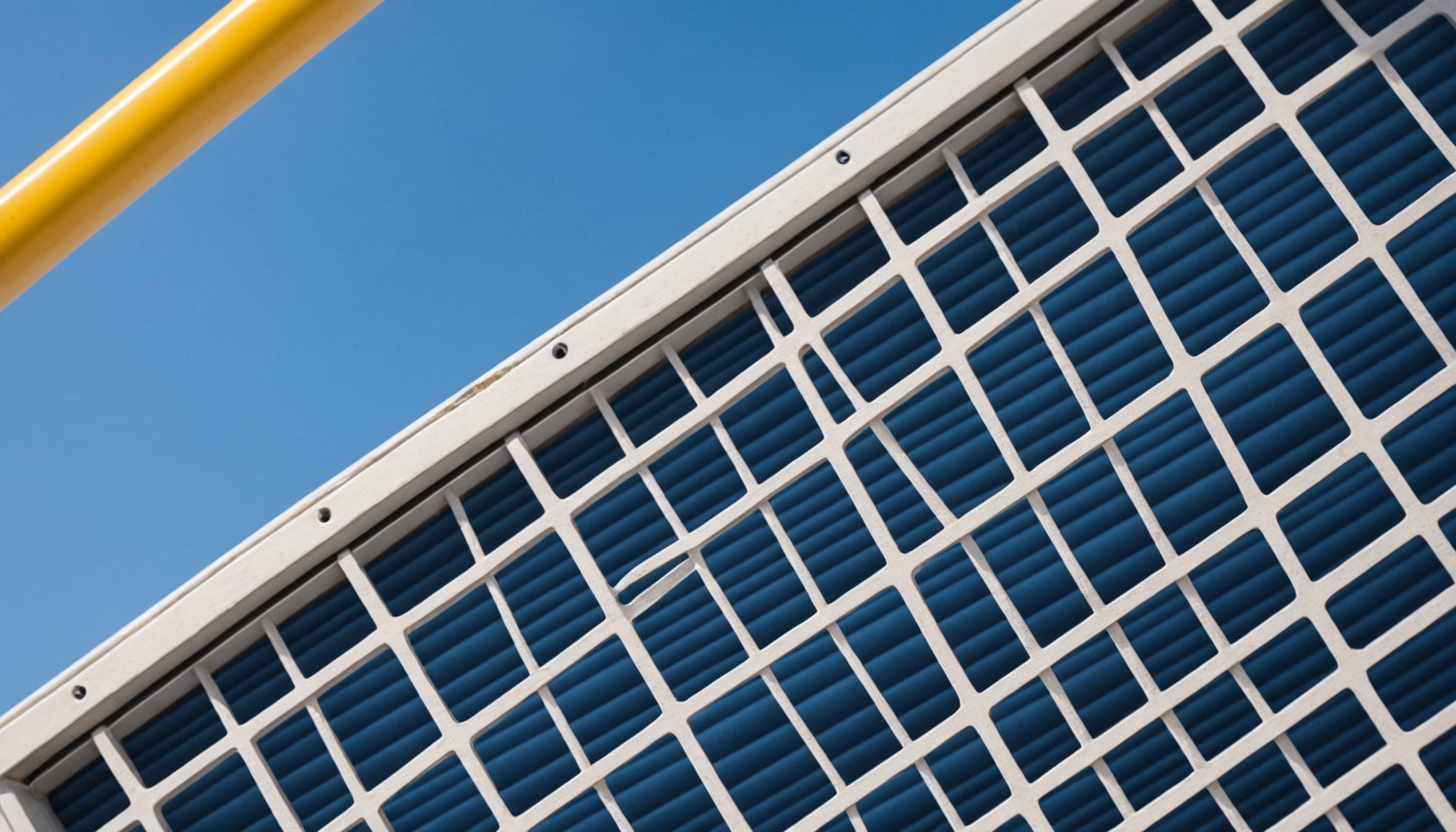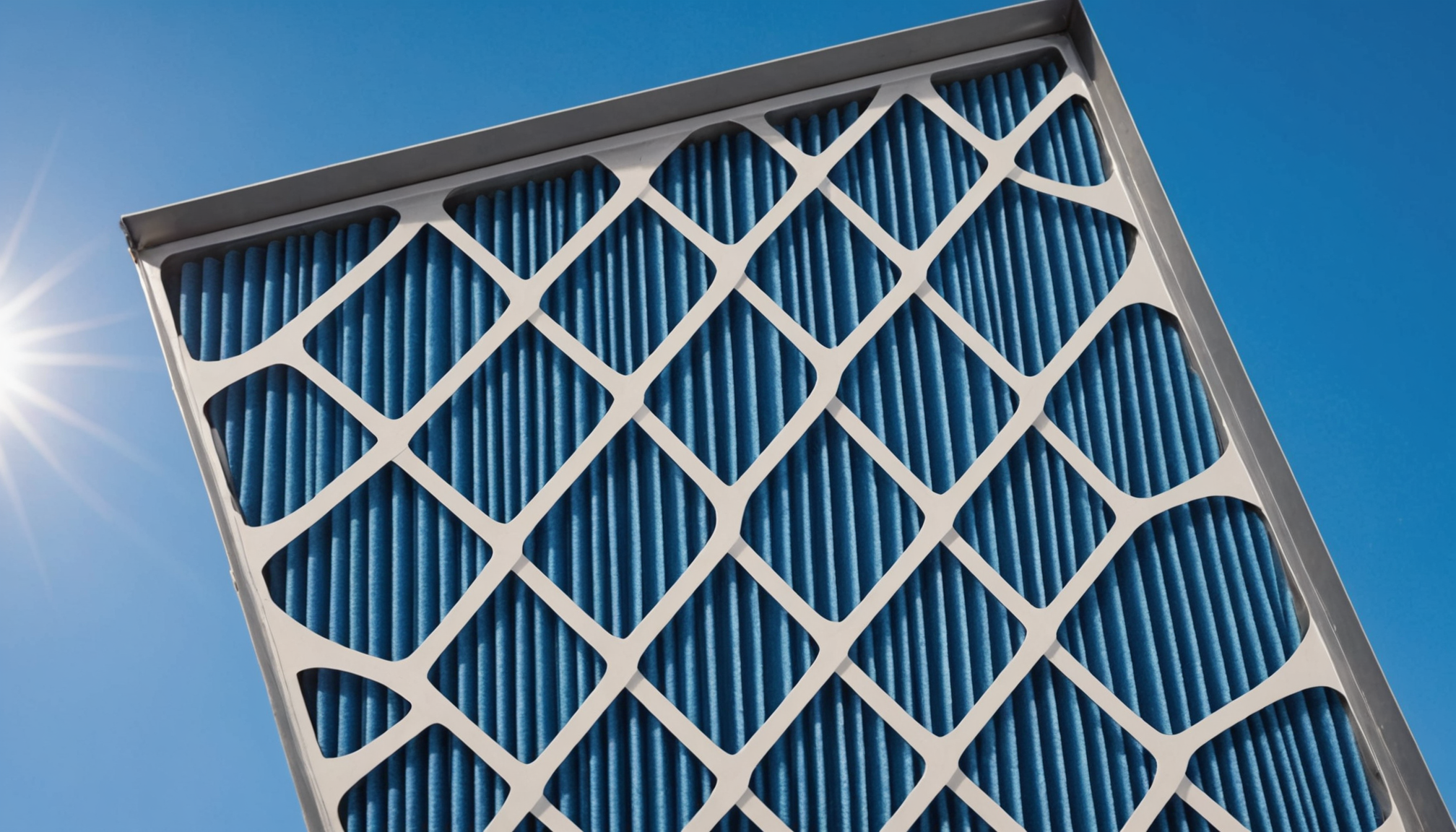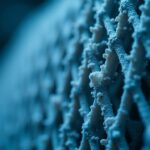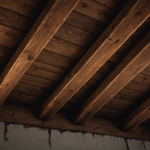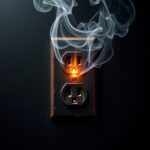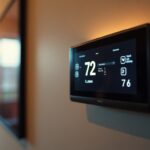Air filters play a crucial role in maintaining the efficiency and effectiveness of your heating, ventilation, and air conditioning (HVAC) systems. By trapping dust, pollen, mold, and other microscopic particles, air filters ensure that the air circulating through your home or office is clean, improving overall air quality and contributing to a healthier living environment.
The primary function of an air filter is to prevent these pollutants from entering and clogging the HVAC system. When air passes through the filter, particles are captured in the fine mesh material, effectively reducing the concentration of airborne particulates. This is essential for safeguarding both the mechanical components of your HVAC system and the health of the building’s occupants.
An often-overlooked benefit of using clean air filters is enhanced energy efficiency. A clean air filter reduces the amount of work required by the HVAC unit to circulate air, thus decreasing energy consumption. With less strain on the system, homeowners and businesses can see significant reductions in energy bills while simultaneously extending the lifespan of their HVAC equipment.
| Aspect | Effect of Clean Filter | Effect of Dirty Filter |
| Air Quality | Improves as pollutants are effectively captured | Degrades due to accumulation of dust and allergens |
| Energy Efficiency | Increases as airflow is not restricted | Decreases because the system works harder |
| System Longevity | Enhanced as system components face less wear | Reduced due to strain and overheating |
Regular HVAC maintenance practices that prioritize timely replacement of air filters help to ensure that air quality and energy efficiency remain optimal. This not only promotes a cleaner atmosphere indoors but also alleviates unnecessary pressure on mechanical systems, ultimately saving money on repairs and utility costs. Moving forward, understanding how to manage your air filters effectively can lead to better performance and significant financial benefits.
Signs of a dirty air filter
A dirty air filter can significantly impact both the performance of your HVAC system and the air quality in your home. It’s crucial to recognize the signs that indicate when a filter is no longer functioning effectively. Here’s what you should look for:
1. Reduced Airflow: One of the most noticeable signs is diminished airflow from the vents. If your HVAC system is running, but there’s barely any air coming through, it’s likely due to a clogged filter restricting air circulation. This puts additional strain on the system as it works harder to maintain the desired temperature.
2. Increased Energy Bills: If you notice an unexplained increase in your energy bills, a dirty air filter may be the culprit. As the filter becomes clogged with dirt and debris, the HVAC system must use more energy to force air through, leading to higher utility costs.
3. Unusual HVAC Behavior: You might experience your HVAC system cycling on and off more frequently or running longer than usual. This erratic behavior can result from the system struggling to achieve the thermostat’s set temperature due to restricted airflow caused by a dirty filter.
4. Dust Buildup Around Vents and Home Surfaces: A dirty filter can’t effectively capture airborne dirt and particles, leading to more dust settlement on surfaces around your home. If you find yourself constantly dusting but seeing no improvement, it’s time to check your air filter.
5. Increased Allergy Symptoms: If you or your family members begin to experience heightened allergy symptoms such as sneezing, coughing, or itchy eyes, a dirty air filter might be allowing allergens like pollen and dust mites to circulate through your home.
6. Inspecting the Filter: Physically checking the filter can also provide insights. If the filter appears visibly clogged with dust, dirt, or looks gray and opaque, these are strong indicators that it’s due for a change. A good habit is to check this every month, especially during heavy-use periods, such as summer and winter.
By staying vigilant for these signs, you can replace or clean your air filter before it creates larger problems, ensuring that your HVAC system continues to run efficiently. Regular HVAC maintenance, including timely filter replacements, can significantly enhance your home’s energy efficiency and contribute to better indoor air quality, preventing higher costs and discomfort down the line.
Financial impact of neglected filters
Many people underestimate the true cost of neglecting air filter maintenance. When these filters become dirty, they force your HVAC system to work significantly harder to pull air through the clogged mesh. This increased effort translates directly into higher energy consumption and, consequently, inflated utility bills. Neglecting to replace a dirty air filter could inadvertently lead to a tangible hit on your finances.
Consider this: a dirty filter can increase your HVAC system’s energy consumption by up to 15 percent, yielding a marked increase in your energy bills over time. This might not seem substantial at first glance, but over the course of a year, the additional cost can be significant. Moreover, the excess strain on your HVAC system accelerates wear and tear, inevitably leading to more frequent repairs. This means not only higher immediate repair costs but potentially shortening the lifespan of your entire HVAC system, necessitating premature and costly replacement.
In addition to these direct financial impacts, a neglected air filter can also have subtle, yet equally costly, indirect effects. Poor air quality resulting from a dirty filter can exacerbate health issues, leading to increased medical expenses. Dust, pollen, and other allergens are not effectively filtered out, which can exacerbate conditions such as asthma and allergies, resulting in more frequent doctor visits and medication requirements. The health-related consequences of poor air quality should not be underestimated, as they also contribute to decreased productivity and well-being.
From this perspective, the routine act of changing an air filter is not just a maintenance task, but a proactive financial strategy. By facilitating better airflow and thereby improving energy efficiency, a clean air filter helps in maintaining a steady and comfortable indoor temperature without overburdening the system. This not only ensures that you are maximizing the lifespan and reliability of your HVAC system, but also that you’re doing so in an economically sound manner. Subscribing to regular HVAC maintenance by replacing filters can result in substantial savings, making it a small but impactful investment towards your home’s overall financial health.
Steps to replace your air filter
Replacing your air filter is a straightforward process that can have a significant impact on the efficiency and longevity of your HVAC system. Here is a step-by-step guide to help you through the replacement procedure:
Start by turning off your HVAC system. Before you begin any maintenance on your system, it is essential to ensure your safety by switching off the power supply. This prevents any debris from being blown around while you’re in the middle of changing the filter.
Locate your existing air filter. Typically, air filters are housed within the return air duct or the air handler itself. Consult your HVAC system’s manual if you’re uncertain about the location. The filter is usually found within a slot along your duct system or behind the return air grille.
Remove the old filter carefully. Once you have located the filter, gently slide it out of its slot. Pay attention to any dust and debris that may fall off the filter, and consider using a disposable glove to keep your hands clean.
Check the existing filter’s size. Air filters come in various sizes, so it’s crucial to note the dimensions of your current filter. These sizes are usually printed on the frame of the filter. Make sure the new filter matches these dimensions precisely for a proper fit.
Insert the new filter in the correct direction. Most air filters have arrows on the side to indicate the direction of airflow. Make sure the arrow points towards the blower or supply side of your HVAC unit to ensure proper function.
Secure the filter in place. Slide the new filter into the slot from which you removed the old one. Ensure it fits snugly without bending or forcing it into place, which could lead to insufficient filtration or airflow blockages.
Once the new filter is in place, turn your HVAC system back on. After completing the replacement, restore power to your system and begin enjoying improved air quality and energy efficiency.
Replacing your air filter regularly, typically every 1-3 months depending on usage and the presence of allergens and pets, is a key aspect of ongoing HVAC maintenance. It can prevent a host of issues related to decreased air quality and increased repair costs. By incorporating this simple task into your routine, you ensure your system works efficiently, maintaining a comfortable and healthy home environment while also extending the system’s lifespan.
Remember, this routine check-up is a preventative measure that saves both energy and money in the long run, providing an effective way to manage your HVAC system with minimal effort. Regular maintenance not only enhances system performance but also contributes to significant financial savings and peace of mind.
Tips for maintaining clean air filters
Maintaining clean air filters is a crucial aspect of HVAC maintenance and is instrumental in ensuring optimal energy efficiency and air quality in your home. To keep your system running smoothly, it’s essential to develop a routine that supports regular checks and cleanings. Here are some practical tips to help you maintain clean air filters and maximize the benefits of your HVAC system:
Firstly, establish a consistent schedule for checking your air filters. It’s advisable to inspect them at least once a month, particularly during peak usage seasons such as summer and winter. Regular checks enable early detection of clogs and help you maintain both air quality and energy efficiency by ensuring that your HVAC system isn’t overworking.
Consider opting for high-quality filters that meet the specific needs of your home environment. Filters with higher Minimum Efficiency Reporting Value (MERV) ratings are more effective at trapping smaller particles, though it’s important to ensure compatibility with your HVAC system, as overly restrictive filters can impede airflow. This nuanced understanding of filter type can contribute to more effective filtration without compromising system functionality.
Implement strategic housekeeping habits that reduce the amount of dust and debris in your home. Regular vacuuming, dusting, and the use of air purifiers can significantly lower the particle load, allowing your filters to perform more efficiently and last longer. By reducing the dust levels, you not only ease the burden on your air filter but also enhance the overall air quality inside your home.
Additionally, proactively manage environmental factors that contribute to air contamination. Maintain a smoke-free home and minimize the use of aerosols and harsh chemical cleaners, which can increase pollutants in the air. Encouraging family members and guests to remove shoes at the door can also prevent outdoor contaminants from entering your living spaces.
Lastly, consider enrolling in an HVAC maintenance program offered by a professional service provider. Many companies offer plans that include regular filter changes and system checks, ensuring that your HVAC system remains in peak condition year-round. These services provide peace of mind, knowing that professionals are monitoring and maintaining your air quality and energy efficiency.
Keeping your air filters clean is a simple yet impactful task that supports both your financial and health objectives. By incorporating these maintenance habits, you’ll safeguard your HVAC system’s performance, extend its lifespan, and enjoy enhanced indoor air quality and comfort.
In summary, maintaining clean air filters offers a straightforward and effective way to protect your investment in an HVAC system. By regularly monitoring and replacing filters, being mindful of environmental factors, and using high-quality filters, you ensure that your system functions efficiently. Such maintenance not only contributes to improved air quality and energy efficiency but also results in long-term financial savings and a healthier living environment.
